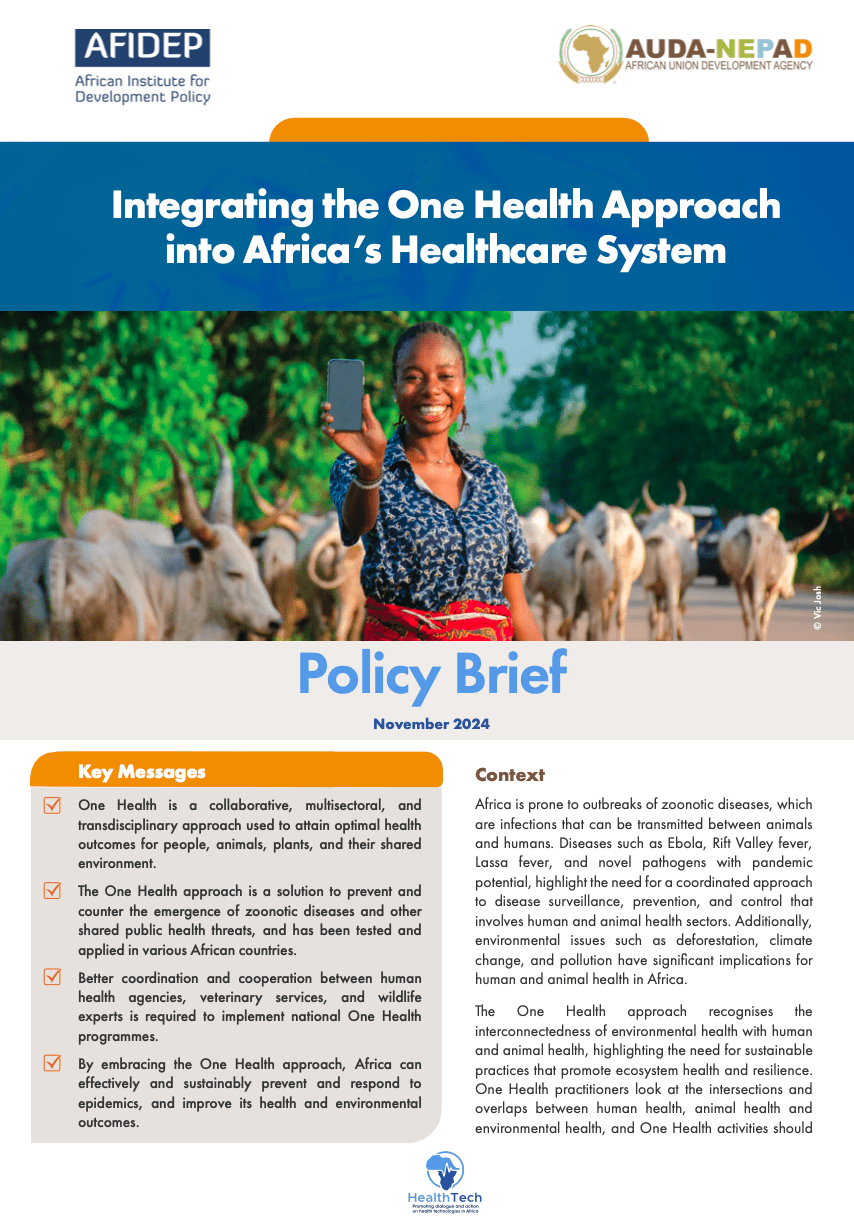One Health is a collaborative, multisectoral, and transdisciplinary approach to achieve optimal health outcomes for people, animals, plants, and the environment they share. One Health promotes collaboration across human and animal health and the environment to prevent, detect, and respond to disease threats, given the intricate interconnections between the three sectors. This approach is particularly vital for addressing zoonotic diseases—those that can spread between animals and humans—and other shared public health challenges.
One Health Application in Africa
The One Health approach fosters sustainable practices that promote ecosystem health and resilience. One Health initiatives have led to significant improvements in disease prevention and control across the continent, such as the following:
- During the 2014–2016 Ebola outbreak in West Africa, countries like Guinea, Sierra Leone, and Liberia used One Health strategies, coordinating efforts between human health agencies, veterinary services, and wildlife experts to control the virus spread.
- In East Africa, collaborative efforts between human health authorities, veterinary services, and environmental agencies have effectively managed Rift Valley fever outbreaks through early warning systems, livestock vaccination, and public health education.
- In Somalia and Kenya, One Health principles have improved animal health and human health outcomes in pastoralist communities through integrated vaccination campaigns and hygiene promotion.
- In Zambia and Tanzania, One Health approaches have enhanced malaria control efforts through coordinated vector control and environmental management initiatives.
- In the Lake Victoria region, integrated efforts have reduced the incidence of waterborne diseases such as cholera and typhoid through improved water quality, sanitation, and hygiene practices.
Policy Recommendations to Strengthen the One Health Approach in Africa
- Develop and implement national One Health policies and strategies.
- Establish mechanisms for multi-sectoral collaboration among health, agriculture, environment, and other relevant sectors.
- Invest in training and capacity-building initiatives for interdisciplinary skills in One Health.
- Integrate One Health principles into educational curricula at universities and training institutions.
- Engage communities to raise awareness and promote sustainable health practices.
- Provide financial support for One Health initiatives and harmonizing regulatory frameworks across sectors.
Embracing the One Health approach is essential for African countries to address the interconnected health challenges and promote sustainable development, resilience, and health security. Strengthening One Health across African Union member states will enhance the continent's capacity to prevent, detect, and respond to emerging zoonotic diseases, contributing to the achievement of the Africa We Want under Agenda 2063.
